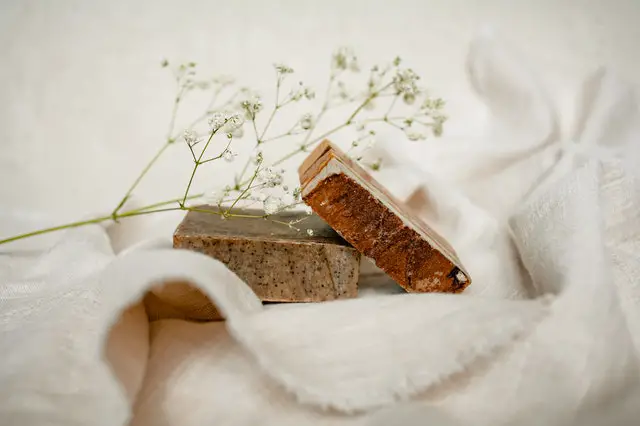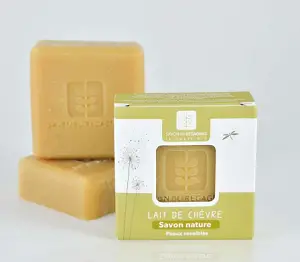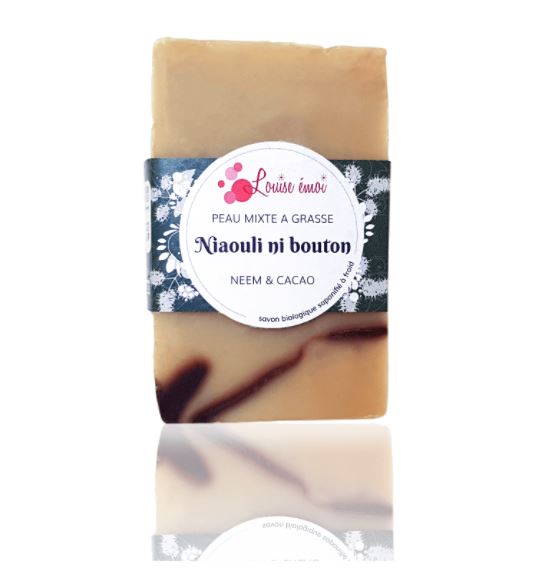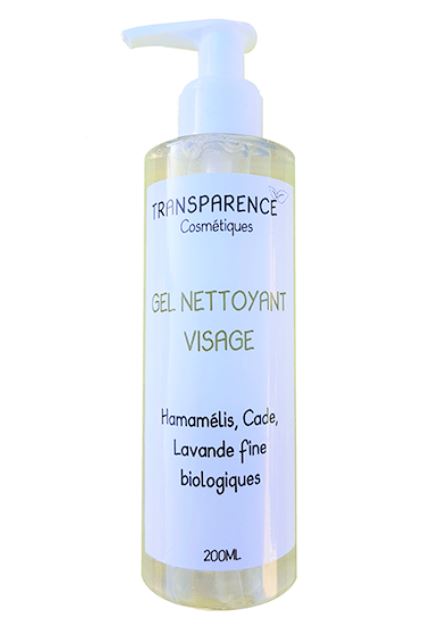Basically, soap is simply used to clean yourself. But over time, its function has evolved and today it is a real skin care product. To respond to this development, the composition of soaps has also changed, and it has adapted to each type of skin. At the same time, certain components have also appeared in the formulas, although they are not necessarily good and healthy. But it's not easy to navigate among the multitude of choices we have. So, to help you, find out in this article: Which soap to choose for oily skin? First, find out our selection of the best soaps for oily skin. Then find out the criteria to follow to choose a good, healthy and effective soap for oily skin.
In this section:
Which organic soap for oily skin?
In this first part, discover a selection of effective soaps for oily skin. All of these soaps meet very specific criteria in terms of quality and choice of ingredients. Find the details of these criteria in the second part of this article.
Very mild organic goat's milk soap
Why adopt it?  20% of the total of its ingredients is goat's milk renowned for its absolute softness and its anti-imperfection action for oily skin.
20% of the total of its ingredients is goat's milk renowned for its absolute softness and its anti-imperfection action for oily skin. Its formula is free from allergens, essential oils and petrochemicals.
Its formula is free from allergens, essential oils and petrochemicals. Suitable for the skin of the body and face and for the whole family.
Suitable for the skin of the body and face and for the whole family.  Resulting from a cold saponification, it contains only non-irritating, non-stripping and non-drying natural active ingredients for the skin.
Resulting from a cold saponification, it contains only non-irritating, non-stripping and non-drying natural active ingredients for the skin.
Organic soap for oily and acne-prone skin
Why adopt it?  Its composition is rich in neem vegetable oil and rosemary essential oil, known to regulate sebum and purify the epidermis.
Its composition is rich in neem vegetable oil and rosemary essential oil, known to regulate sebum and purify the epidermis.  Cold saponified, it contains no drying ingredients and it is rich in natural glycerin for maximum softness.
Cold saponified, it contains no drying ingredients and it is rich in natural glycerin for maximum softness. Ideal for oily and acne-prone skin because it contains niaouli oil known to be antiseptic and fungicidal to eliminate the bacteria responsible for pimples.
Ideal for oily and acne-prone skin because it contains niaouli oil known to be antiseptic and fungicidal to eliminate the bacteria responsible for pimples.  Very good consumer opinions on its anti acne and anti oily skin effectiveness.
Very good consumer opinions on its anti acne and anti oily skin effectiveness.
You have been warned! : contains essential oils. Not suitable for pregnant, breastfeeding women and children under 12 years old.
Organic cleansing gel for oily and / or sensitive skin
Why adopt it?
 An extra gentle and 100% natural cleansing gel to gently cleanse without stripping and without irritating oily skin.
An extra gentle and 100% natural cleansing gel to gently cleanse without stripping and without irritating oily skin.  Formulated without soap and based on the mildest non-sulphated surfactants on the market, it respects the delicate pH of the skin while foaming more easily than solid soaps.
Formulated without soap and based on the mildest non-sulphated surfactants on the market, it respects the delicate pH of the skin while foaming more easily than solid soaps.  Contains Witch Hazel floral water known to purify and rebalance oily skin.
Contains Witch Hazel floral water known to purify and rebalance oily skin.  Adapted mainly for washing the face, it is validated and recommended by consumer opinions.
Adapted mainly for washing the face, it is validated and recommended by consumer opinions.
You have been warned! : contains essential oils. Not suitable for pregnant, breastfeeding women and children under 12 years old.
How to choose your soap for oily skin?
Now that you know our selection of the best soaps for oily skin, it is important that you know why we have selected them. Thus, you will be able to identify and choose a healthy and effective soap. So, find out in this part the criteria for choosing a good soap for oily skin.
Why do you have oily skin?
Oily skin is easily recognized. It is characterized by excessive sebum production (hyperseborrhea). As a result, the skin appears oily. Sebum is the skin's natural oil, which has the role of protecting it from external aggressions and preventing dehydration. It is the first constituent of the hydrolipidic film (or otherwise called protective film) skin. It therefore operates as a skin barrier.
Although sebum is essential for keeping skin in good condition, its production is excessive in people with oily skin. This can be the result of a large number of internal as well as external factors. And very often cosmetic products and in particular the soap, which we use have a great deal of responsibility for the overproduction of sebum.
Indeed, it is important to note that sebum is made by sebaceous glands which are found in the pores of the skin. These will react during each stimulation -or what seems to them to be an assault- by making a little more sebum. Since the majority of industrial soaps and / or shower gels are manufactured with ingredients that strip the skin, the sebaceous glands will react and therefore produce more sebum! As a result, the skin becomes more and more oily and this, more and more quickly.
Therefore, in adopting a mild soap and non-strippers you will quickly see a marked improvement in the condition of your skin.
Which soap for oily skin: the selection criteria
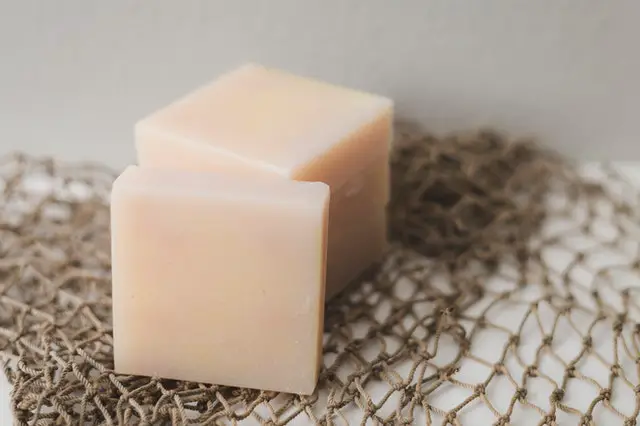
Soap can be liquid or solid. It is obtained by hot or cold saponification of a fatty substance (vegetable oil or fat of animal origin) with a strong alkaline agent (soda to obtain a solid soap, potash for a liquid soap). Together, they form a chemical reaction that will wash the skin.
There are different ways to make a soap and it will therefore have various properties may be more or less adapted to your type of oily skin. All the soaps will be characterized by:
- their detergency, ie their ability to wash and eliminate dirt;
- the amount of foam created which has nothing to do with the ability to clean (a soap that latheres simply means that it will use chemical ingredients);
- their pH which indicates if they are more or less irritating.
So, which soap matches your oily skin type?
1 - What type of soap to choose for oily skin?
Surgras soap, soap without soap, Marseille soap, Aleppo soap, cold saponified soap, syndet, classic shower gel ... Just as many different names and soaps can quickly become a problem to navigate and choose a good soap for oily skin. To simplify your task, we have listed in a simple way the soaps that correspond to your type of skin, and those that it is better to avoidr.
The right soaps for your oily skin:
- Cold saponified artisanal soap. Cold saponification keeps the virtues of the ingredients in the formulation. Rich in vegetable glycerin (and not animal like most industrial soaps use), it moisturizes and cares for the skin to help it regain its balance. In addition, this method of manufacture does not require any irritating and drying sulphated surfactants. You can find different recipes for artisanal soaps. Make sure it is labeled “cold saponified” or “cold method” and that it is specified “for oily skin”. Know that the goat milk soap is particularly recognized for balancing sebum and reducing acne.
- Organic cleansing gel. The cleansing gel has the particularity of being presented in liquid form. For the elaborate, it is about the use of surfactants. Unlike solid soap, this will be obtained without saponification. It is similar to industrial shower gel because it often has a little more foaming power. However, be careful that it is natural, organic and free from sulphated surfactants to avoid irritating or drying out your skin.
- Aleppo soap or Marseille soap. Both from hot saponification, they are formulated with natural ingredients that are gentle on the skin. Recognized for their purifying and balancing properties, they also effectively cleanse the skin without stripping it. However, be careful with their composition. Due to their success, some brands do not hesitate to modify the basic composition of these soaps and to replace part of their components with other oils (palm oils or even sometimes animal fats). We advise you to buy them in organic stores, from small artisans or trusted sites such as Slow Cosmetics.
- Syndets. Otherwise called "soap without soap" or "dermatological bar". Although these soaps are made from synthetic detergents, they are close to the pH of the skin. This is often not the case with industrial soaps and shower gels or even artisanal soaps. Indeed, the pH of the skin is 5. The majority of the soaps that you will find will have a neutral pH which corresponds to a pH of 7. Thus, unlike the syndets, they do not necessarily correspond to the needs of the skin.
Soaps to avoid for your oily skin:
- Surgras soap. Surgras soap is a classic solid soap that has been enriched with oil and therefore fat. Its function is to protect the skin by replacing the sebum of the skin. Since oily skin does not lack sebum, you may therefore suffocate your skin and see pimples forming using this type of soap. Caution exception : when the oils used have purifying and balancing properties, surgras soap can be adapted to oily skin. In these cases, check that it is marked "for oily skin" or "for acne-prone skin". You can also analyze its composition and identify if it contains sebum-regulating active ingredients (refer to the last part of this article).
- Shower gels or industrial soaps. The latter are not recommended either because they are too drying. As a result, they strip the skin and the sebaceous glands will therefore start to produce more sebum.
2 - Choose an organic soap for oily skin
Why should you choose an organic soap for oily skin? Organic soaps further guarantee the presence of healthy and gentle ingredients in their composition. Indeed, formulated with ingredients of natural origin and without toxic ingredients, they are generally less drying and less irritating than industrial soaps.
To recognize an organic soap for oily skin, it will have to respect an organic charter and therefore we have awarded it a Label. Here are these Labels: Ecocert, Cosmebio, Ecolabel, Cosmos Organic, Nature & Progrés, Fleur Européenne, Natrue or Vegan.
3 - Choose a soap without drying, irritating or stripping ingredients
Many ingredients incorporated in soaps for oily skin can present skin risks and toxic risks for human health and the environment. Preservatives, dyes, or synthetic fragrances, allergens, sulphates, parabens, phthalates and many others are both irritants, dries and endocrine disruptors suspected carcinogens.
The right ingredients to find in a soap to wash and take care of oily skin
To prevent you from ending up with the wrong soap for oily skin, we advise you soaps from cold saponification. It is the manufacturing method which allows to keep the maximum of virtues and which pollutes the least. In addition, they present the least risk to the skin because they contain non-irritating and non-stripping ingredients.
To recognize a good cold saponified soap, you will find in its composition:
- at the top of the INCI list, saponified vegetable oils and / or butters. To recognize them, you will find the name "Sodium" followed by another name ending with "ate". For example, for saponified coconut oil you will find it under the name "Sodium Cocoate".
- glycerin which is naturally present in oils. It will be found in the INCI list under the name “Glycerin”.
- You will find on the packaging the concepts: "cold saponified", "cold method", the SAF logo, or the ASSAF logo.
In case you choose a soap or shower gel for oily skin with surfactants, we advise you to choose one with mild surfactants derived from sugar which are recognized by the name "Glucoside" or derivatives of the amino acid glutamate, which are recognized by the word "Glutamate". The best slightly irritating surfactants for oily skin will therefore be: “Coco Glucoside”, “Decyl Glucoside”, “Lauryl Glucoside”, “Sodium Cocoyl Glutamate”, “Disodium Cocoyl Glutamate” and “Coco-Betaine”.
Ingredients to ban in soap to avoid irritating oily skin
De many ingredients are not recommended to avoid irritating and drying the skin, but also for environmental and health reasons. It's about :
- sulfates such as "Sodium Laureth Sulfate", "Sodium Lauryl Sulfate", and "Ammonium Laureth Sulfate". These are irritating and stripping surfactants which help to make the skin more oily.
- Certain oils such as animal oils, "Sodium Palmate" palm oil, and animal fat known as "sodium tallowate". The latter in addition to not being ecological, has a reputation for clogging the pores of the skin. Because of this, it will make your skin more oily.
- controversial additives that you will find under the names "EDTA", "PEG", "BHT", etc .;
4 - Choose a soap with sebum regulating active ingredients
To end our article, know than a good soap for oily skin may contain sebum-regulating ingredients. Indeed, certain components naturally have purifying and balancing virtues. When they are integrated into soaps for oily skin, they will act when they come into contact with your skin. Here are the assets with virtues to take care of your oily skin:
- Regulating and purifying vegetable oils: Jojoba, Hazelnut, Sweet Almond, Macadamia, Neem.
- Balancing and purifying essential oils: Cypress, Lavender, Tea Tree, Clary sage, Rosemary with cineole, Bay Saint Thomas, Lemon, Geranium rosat.
- Some additional ingredients: vegetable glycerin, witch hazel floral water, goat milk, aloe vera.
- Purifying and regulating powders: Stinging Nettle, Neem, White or green clay, Rhassoul, Shikakai, and neutral Henna.
To conclude: which soap for oily skin to choose?
- A mild soap, without toxic, irritating, drying or stripping ingredients. To help you, refer to the application INCIBeauty.
- An artisanal cold saponified or certified organic soap;
- or soap without soap or shower gel with mild surfactants.
- A soap with sebum-regulating ingredients (vegetable oils, goat's milk, essential oils, etc.).

